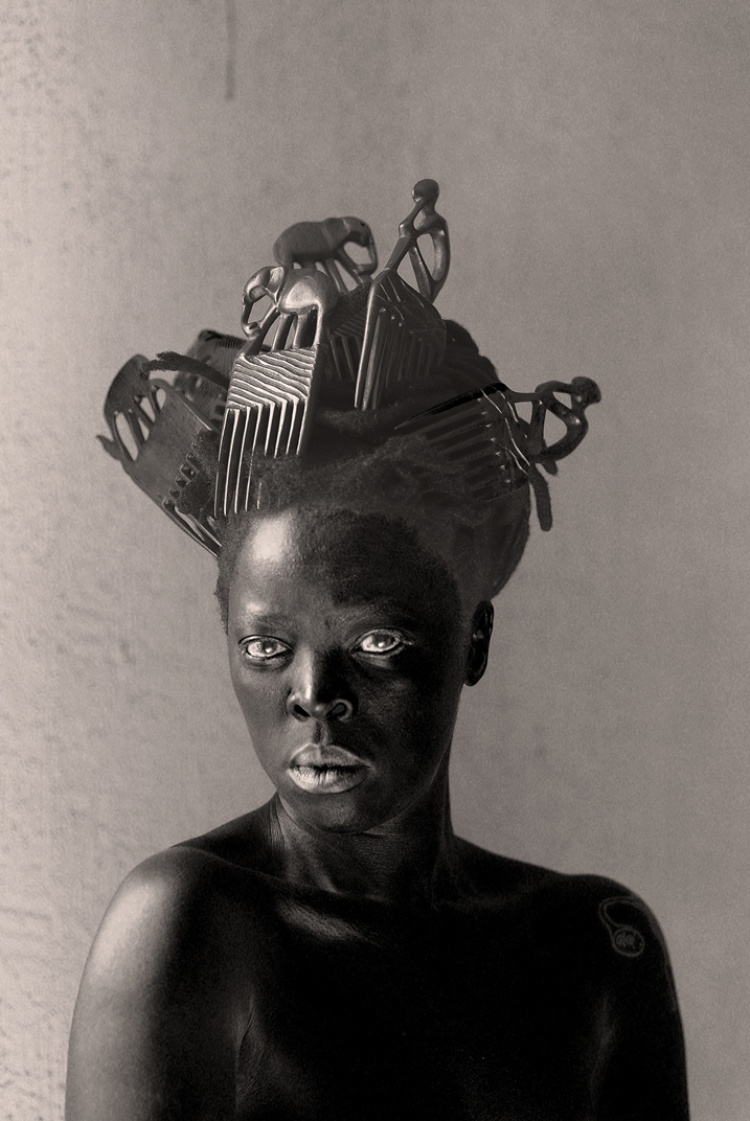
Main site sections
AZOLA / Somnyama Ngonyama
Zanele Muholi and Lindeka Qampi
12.12.2015
-
14.02.2016
Opening: 12/12/2015
AZOLA / Somnyama Ngonyama is the title of the exhibition of photographs by the South African photographers Zanele Muholi and Lindeka Qampi that represents the result of their residence in Sardinia and the workshop at the MAN Museum in the month of December 2015.
The project, curated by Emanuela Falqui, Erik Chevalier and Laura Farneti, includes a selection of works that focus on visual activism and the idea of self-representation, as well as presenting a new series of photographs taken in Sardinia.
Continuing the series of workshops and seminars organized by the MAN, the artists were invited to organize a photographic laboratory within the framework of which different subjects were addressed: from the archives of a community to family histories and self-portraits, up to the issues arise from the digital era, in a shared perspective oriented in the direction of social responsibility.
Zanele Muholi has devoted almost ten years of her life to the documentation of the visual identity of South Africa's lesbians and transgenders, with the creation of a large corpus of more than two hundred and fifty portraits, Faces & Phases, and the declared intention of giving life to a “Map [...], a visual history of black lesbians in South Africa after apartheid” to provide those of the LGBTQI community with an archive in which to identify and restore their dignity. To deal with homosexual identity, Muholi had to cope with the lack of a visual history that represented her and so she placed her narration in the wider field of the formation of identities in South Africa, one that encompassed the question of racism, the image of sexuality and colonialism.
Lindeka Qampi began her activity as a self-taught photographer who created picture postcards for sale to tourists. They showed scenes in the life of the townships around Capetown, where she held her first exhibition in 2010. She continued as a street photographer with a series of images covering more than ten years and which is still ongoing entitled Daily Lives. A native of these places, the artist reveals from within all the visual aspects connected with the most common gestures, with the confined space that was the most explicit sign of apartheid and which designed a way of life that is still has not changed, with the diversity of the cultures, the creativity of the people, their cultural norms and the values of a shared history. Her photographs go beyond the Western pietistic vision of the Third World and bring to the fore everyday gestures as a political sign capable of living the present, transforming it, or at least dreaming of doing so. Another series, Living in this World, narrates the life of youths who grew up without their fathers in the townships.



